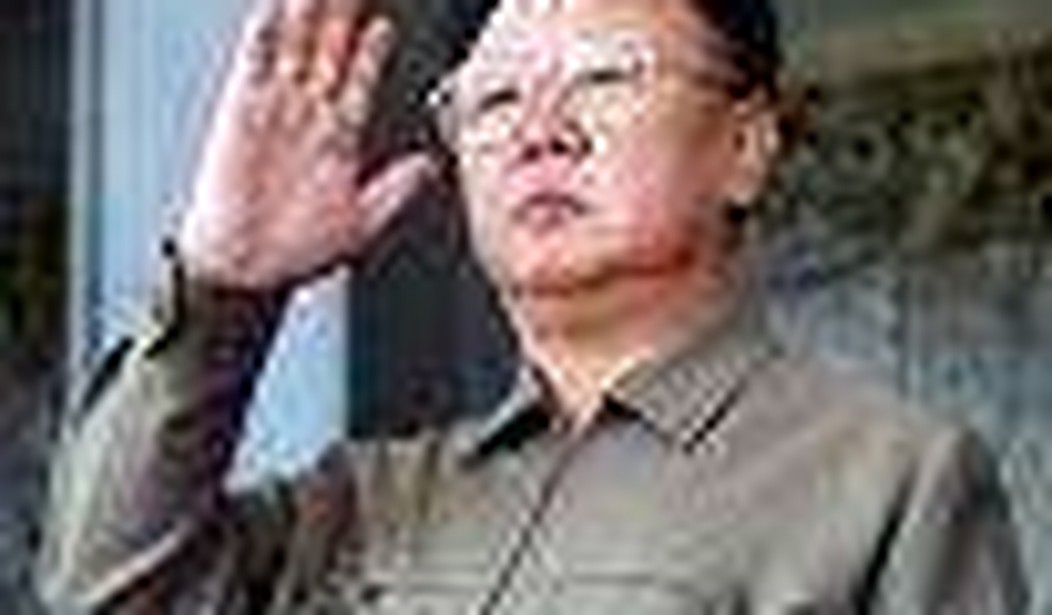For forty-four hours in late February, North Korea’s barren capital was transformed. Down came the hideous anti-American posters, or at least some of them, and up went a shell to improve the acoustics in the 2,500-seat East Pyongyang Grand Theater. The city got ready to welcome the New York Philharmonic for an unprecedented concert.
At the event there were cheers, tears, and a five-minute standing ovation after the third encore, and the audience waved to the premier orchestra at the conclusion of its historic performance. This event was variously labeled “Violin Diplomacy,” “Dvorak Diplomacy,” and — perhaps most appropriately — “Sing Song Diplomacy.” Meanwhile, an article on the event in Time magazine was titled “Notes Of Hope.”
Hope? The Democratic People’s Republic of Korea and the United States of America have been in a technical state of war for more than a half century. The Philharmonic’s visit, which came at the invitation of North Korea last August, was apparently Pyongyang’s way to reach out to Washington. The regime’s minister of culture called the concert a “meaningful omen.” Perhaps more significantly, Li Gun, North Korea’s deputy nuclear negotiator, sat next to William Perry. The former American secretary of defense, who once planned to bomb North Korea’s sole working reactor, gushed that the concert “might just have pushed us over the top” as far as ending the hostile state’s nuclear weapons program is concerned.
Yet after the orchestra went home, Pyongyang returned to expressing its traditional hostility to the United States — and to its well-known practice of dishonoring its commitments. Last October, as a result of the so-called six-party talks, the North had agreed to provide a full declaration of its nuclear programs and activities by the end of December. In a series of informal conversations with Assistant Secretary of State Christopher Hill, Washington’s chief nuclear negotiator, the North Koreans said they had reprocessed from their reactor in Yongbyon 30 kilograms of plutonium, about 20 kilos short of American estimates. And despite substantial evidence to the contrary, they refused to acknowledge that they ever had plans to develop a weapons programs based on uranium cores or had proliferated nuclear weapons technology to Syria. Even if the prior discussions with Hill could be considered a declaration, their declaration was hardly accurate or complete.
In recent days, Pyongyang has made one risible excuse after another for failing to meet its obligations to disclose the extent of its nuclear programs. For instance, last Monday, Pyongyang said that the annual — and long-planned — joint American-South Korean military drills could further delay the denuclearization process. According to a Foreign Ministry spokesman quoted by the official Korean Central News Agency, the exercises were “maneuvers for a nuclear war.” Moreover, Pyongyang has appeared to resist mild Chinese pressure to meet Hill earlier this month during the American envoy’s visit to Beijing, thereby dashing hopes for a breakthrough.
Hill, without other leverage, had no option but to demand that the North Koreans provide their overdue declaration by the end of this month. Pyongyang, however, gave no indication that it would comply, and now it looks as if it is waiting for next year’s change of administrations in Washington to see if it can get a better deal, something the North’s official media denied on Wednesday.
There are quiet efforts to coordinate policy on North Korea in Washington and Seoul, but it appears that an exhausted Bush administration has just given up. In any event, rumors circulating in the American capital indicate that Hill, the chief driver of the denuclearizing process, will retire sometime in the spring. If true, the President will not have the time, before he leaves office next January, to find a replacement and then break the current impasse.
If the North Koreans are not serious about giving up their most destructive weaponry — and recent events demonstrate they are not — then why did they invite the New York Phil to play in Pyongyang? With the replacement of the progressive Roh Moo-hyun with conservative Lee Myung-bak as president of South Korea last month, the North has lost its most reliable ally. Kim Jong Il, the head of Pyongyang’s one-man regime, especially needs assistance now that his economy is headed toward another downturn, and he undoubtedly wants to find a new source of material and diplomatic support for his weakened government. If he can simultaneously hold onto his weapons and give Americans the impression that change is coming to his miserable country, he may be able to substantially strengthen his regime at a critical moment. After all, he has seen that Washington has come to accept — and even support — reforming communists in Beijing over the last three decades.
“We’re going there to create some joy,” said Zarin Mehta, the Phil’s president and executive director, last year, referring to Pyongyang. Yes, the orchestra did create joy for a few hours in the North Korean capital, but it also helped dictator Kim perpetuate his miserable rule.
Gordon G. Chang is the author of The Coming Collapse of China.









Join the conversation as a VIP Member